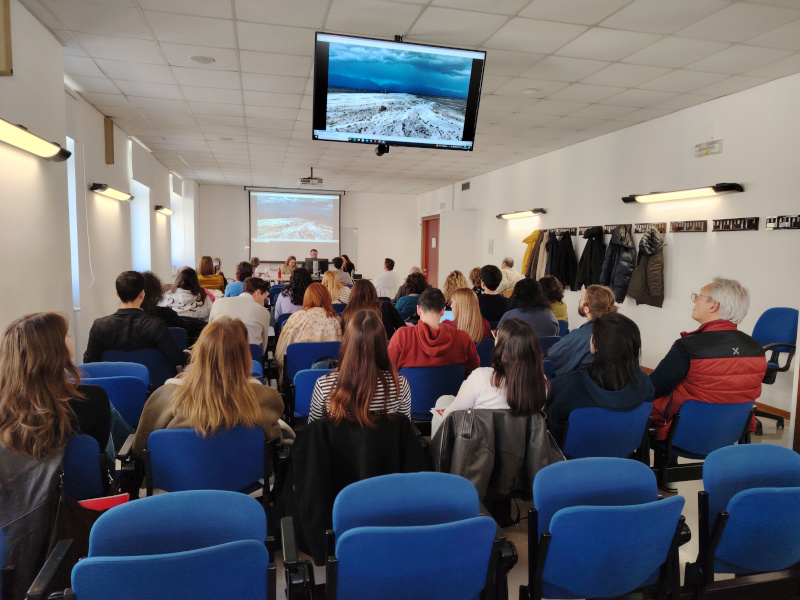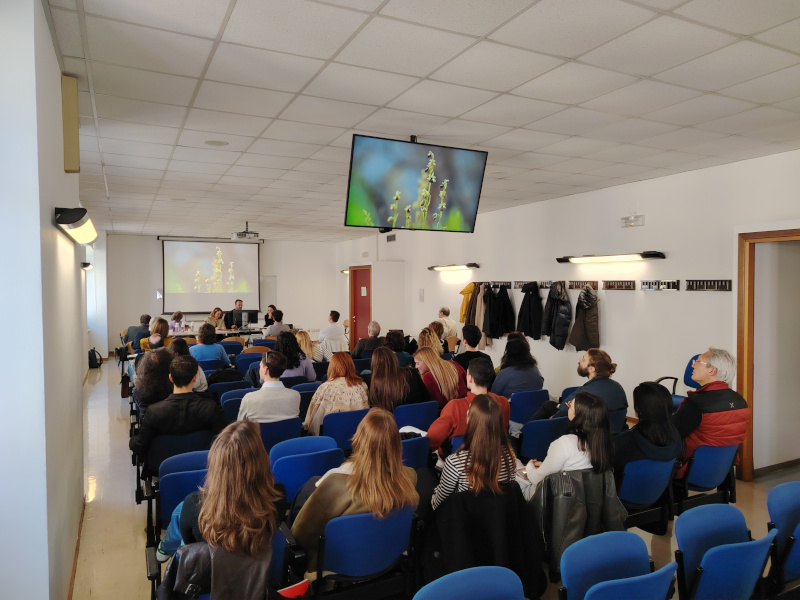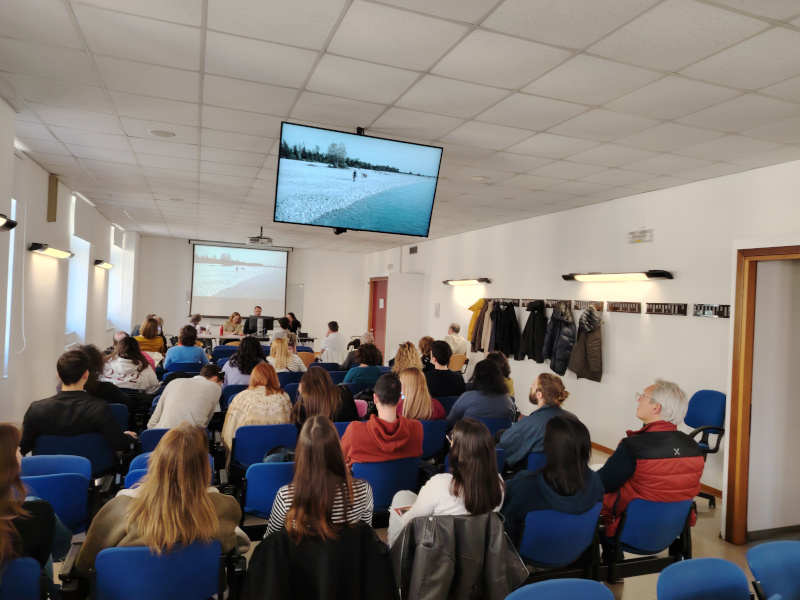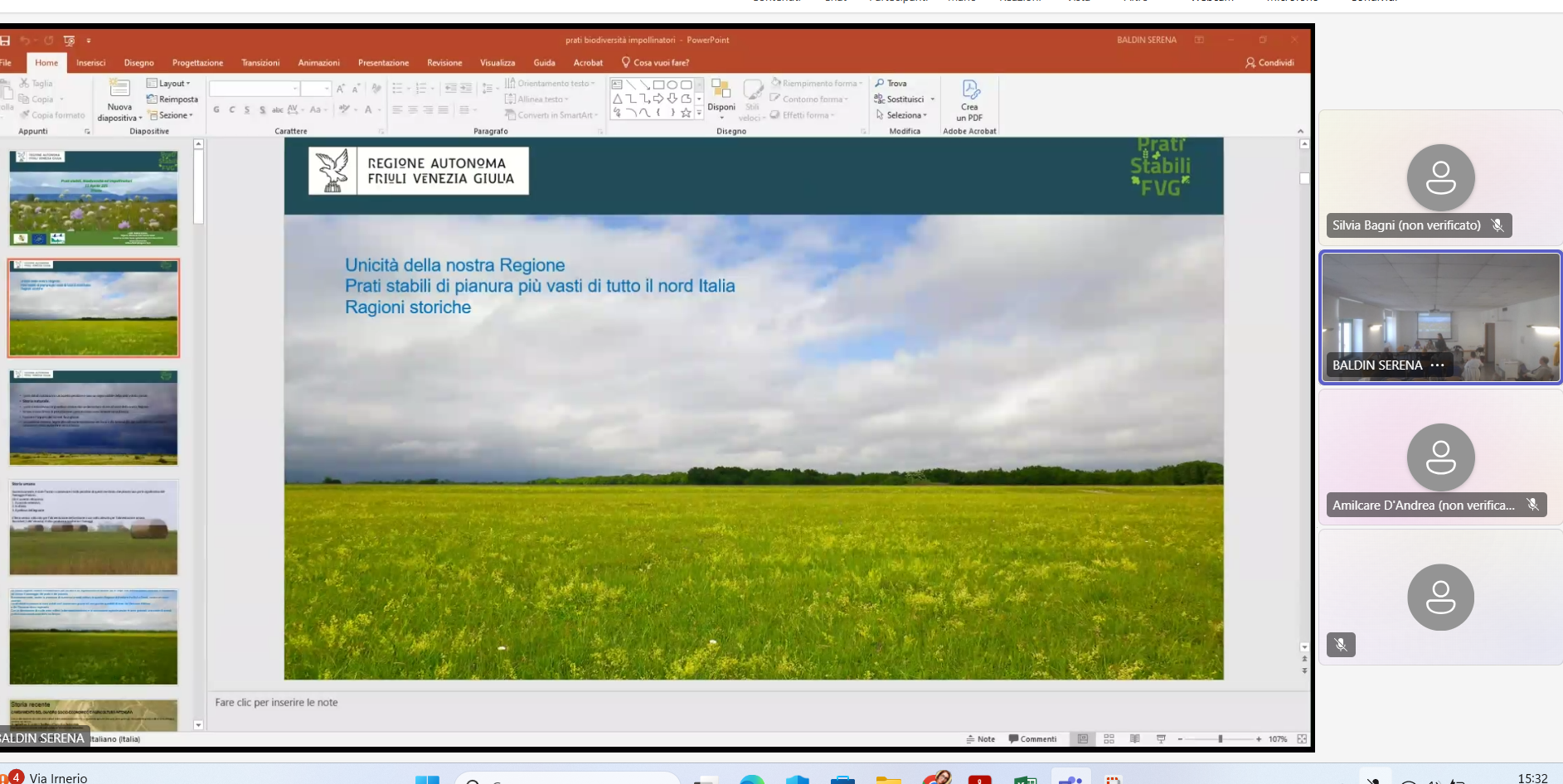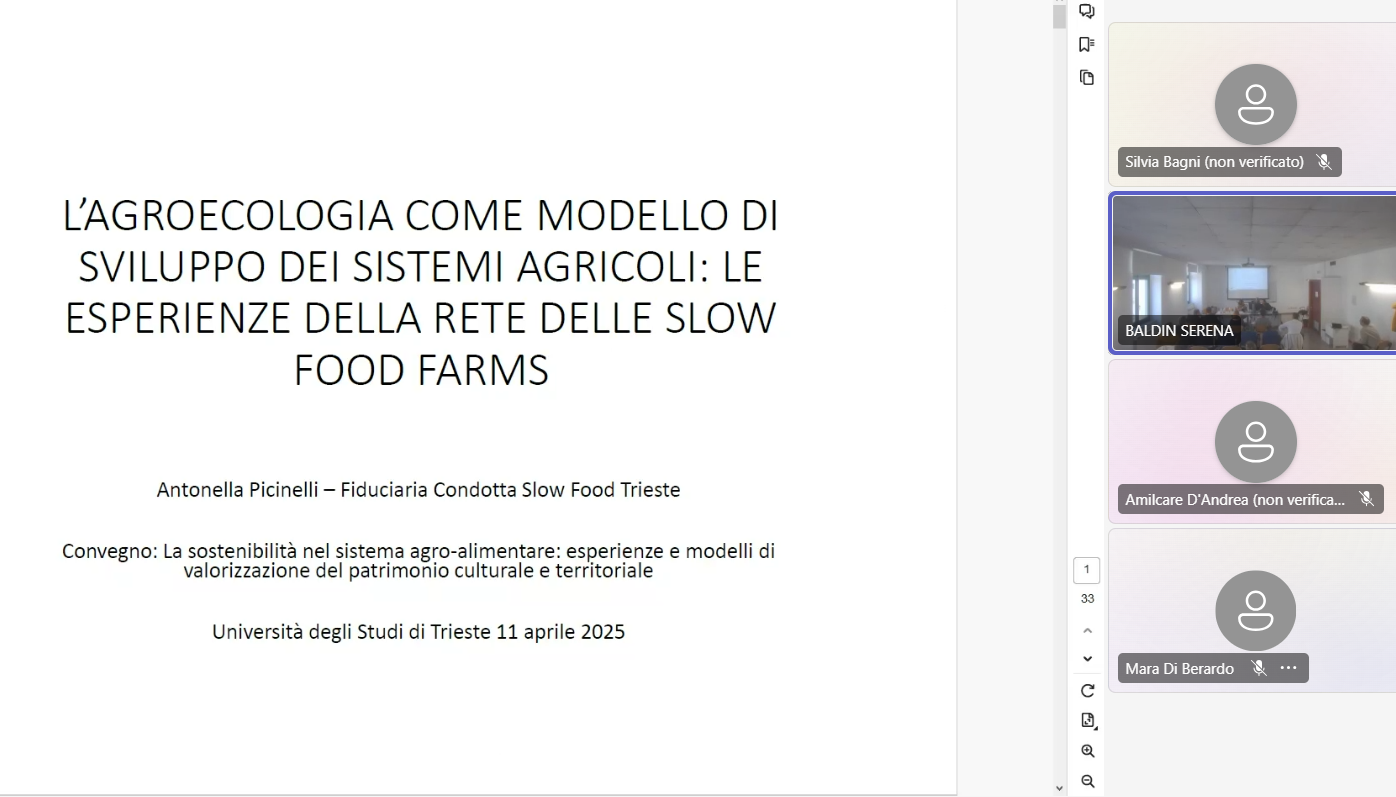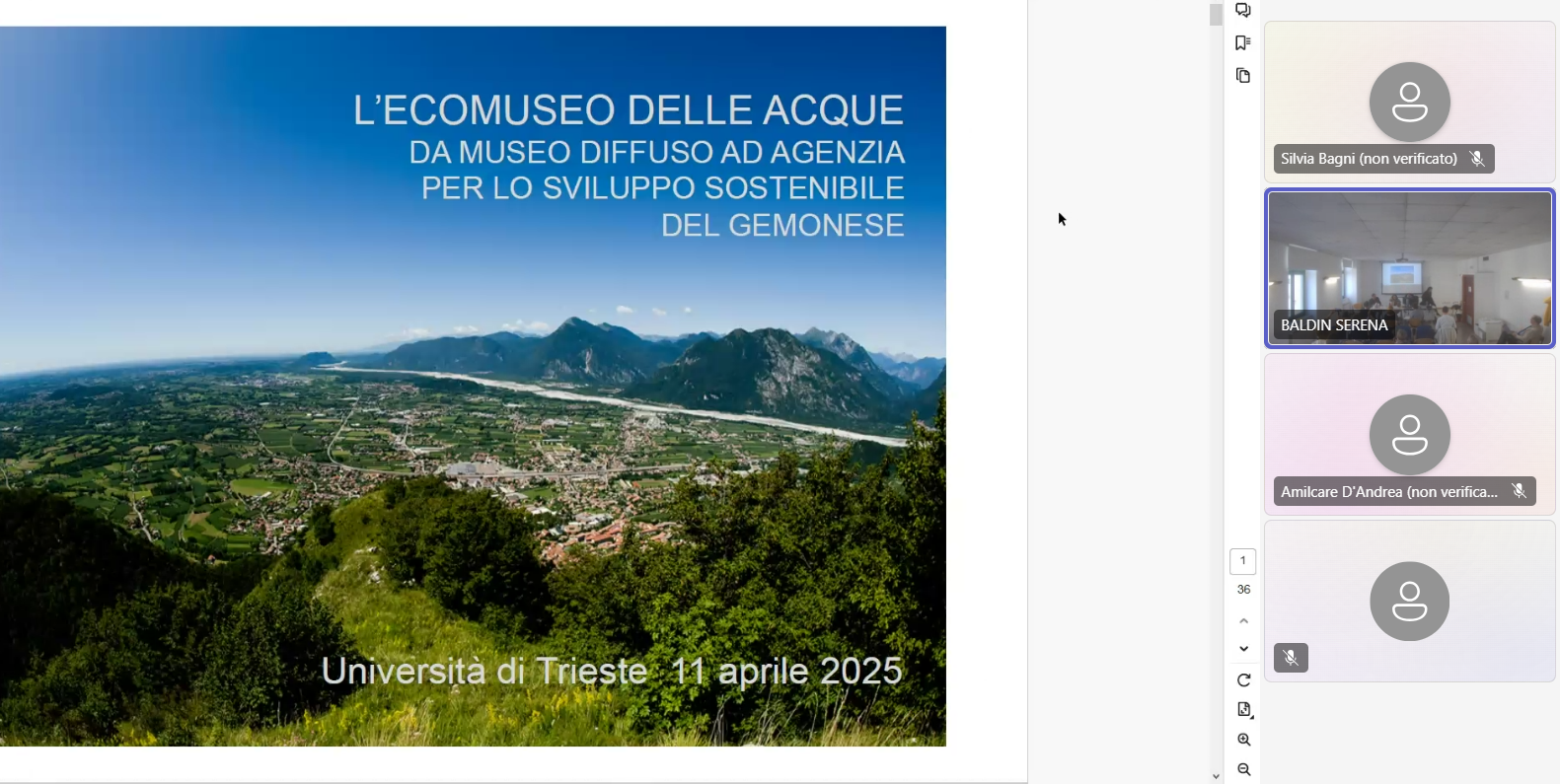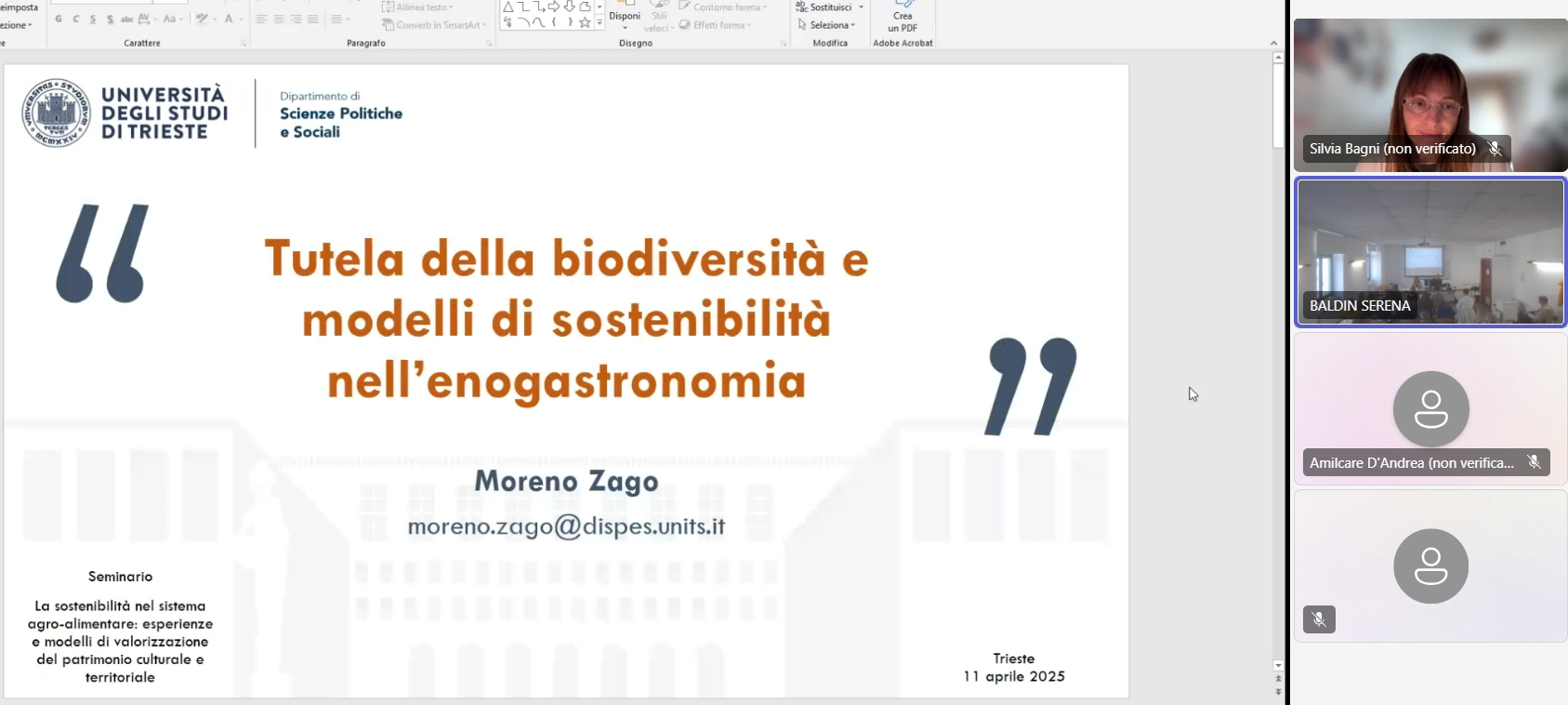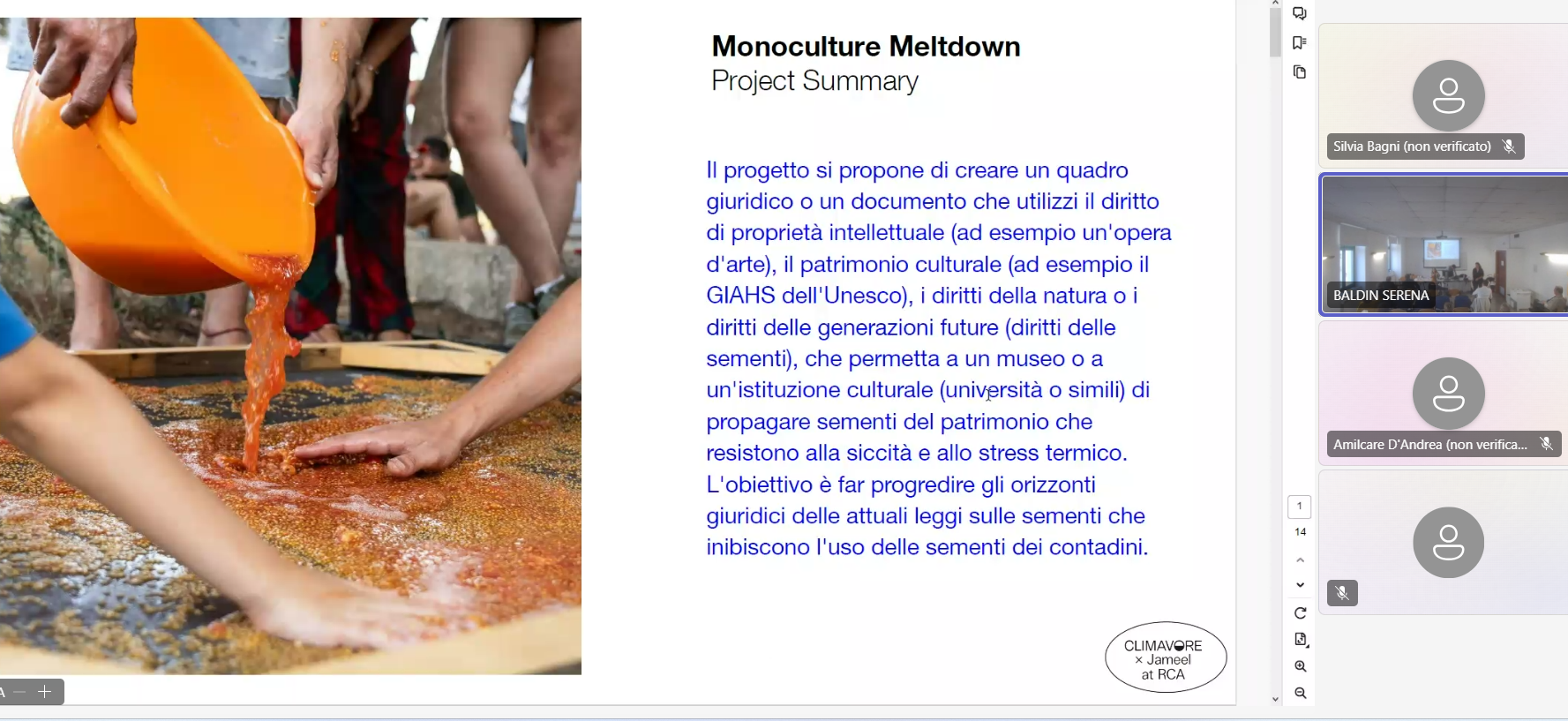Sustainability and Agro-Food: Experiences and Models for the Enhancement of Territorial Heritage in Friuli Venezia Giulia
On April 11, experts discussed key topics for sustainable agriculture, including biodiversity, agroecology, and the preservation of traditional seeds.
Published on 16 April 2025 | Reports
On Friday, April 11, 2025, an important event titled "Sustainability in the Agro-Food System: Experiences and Models for the Enhancement of Cultural and Territorial Heritage" took place. It was organized by Professor Serena Baldin from the University of Trieste as part of the LUMEN project in collaboration with Dr. Enrico Milazzo, project leader of CLIMAVORE x Jameel at the Royal College of Art, London.
The goal of the event was to present experiences and models related to the most suitable social and legal responses for ensuring sustainability in the agro-food system, with a focus on enhancing cultural and territorial heritage, particularly in the Friuli Venezia Giulia region.
At the core of the discussions was the fundamental role of agricultural biodiversity. After a brief introduction to the projects behind the event, Veronica Federico, coordinator of the LUMEN research unit at the University of Florence, led the sessions and interventions.
Serena Baldin opened the debate with a reflection on food security and sustainability, emphasizing the importance of a food system that respects the balance of natural resources and biodiversity. She highlighted the recommendations from international and European institutions, exploring the components that inform sustainability, including environmental, economic, social, and cultural dimensions.
Stefano Fabian, an official from the Friuli Venezia Giulia Region, addressed the pollinator crisis, proposing the recovery of stable meadows as key strategies for environmental conservation and biodiversity promotion. His presentation also focused on projects like Life PollinAction, aimed at improving local ecosystems' quality.
Antonella Picinelli from Slow Food Trieste discussed the Slow Food Farms, a network of agricultural businesses committed to sustainable food production that respects the environment and agroecological principles. She emphasized how the Slow Food philosophy supports agriculture in harmony with nature and promotes consumption that fosters local economies.
Another important intervention came from Maurizio Tondolo, director of the Ecomuseum of Waters. He explained how the participatory and widespread museum developed in the Ledra river basin, through its sustainability efforts, is promoting the protection of local natural and cultural heritage, focusing on local products such as "pan di sorc" (corn bread) and cheese from the Campolessi turnaria dairy, which are now Slow Food Presidia.
The event also covered gastronomic sustainability, with Moreno Zago from the University of Trieste discussing models of slow tourism and sustainable dining, necessary for a future that respects new social and environmental needs. He explored the inclination of the Karst Plateau communities toward adopting sustainability models.
Roberto Louvin, a member of the UNITS research unit, presented the importance of biodiversity databases and memory, showcasing their scientific value and the activities of several institutions in research. He highlighted how the conservation of diverse life forms, both scientifically and culturally, is essential for preserving food biodiversity.
Enrico Milazzo from the CLIMAVORE x Jameel project at the Royal College of Art presented the legal progress for the cultural propagation of traditional seeds, emphasizing the importance of a legal framework that supports the conservation and distribution of drought-resistant varieties.
The event concluded with an intervention by Silvia Zanini, a member of the UNITS research unit, who proposed ideas for a regional law recognizing traditional seeds—a crucial step in promoting sustainable agriculture and agricultural resilience in the face of environmental and climatic challenges.
The event, which saw the participation of 40 attendees, including 9 speakers and 12 journalists, and LUMEN project representatives joining remotely, such as Silvia Baldin (project coordinator), Amilcare D'Andrea (member of UNIBO), and Mara Di Berardo (communication manager of the LUMEN project), sparked significant interest and provided an opportunity to explore the challenges and solutions related to agro-food sustainability and the enhancement of the region's cultural and territorial resources.
Album
